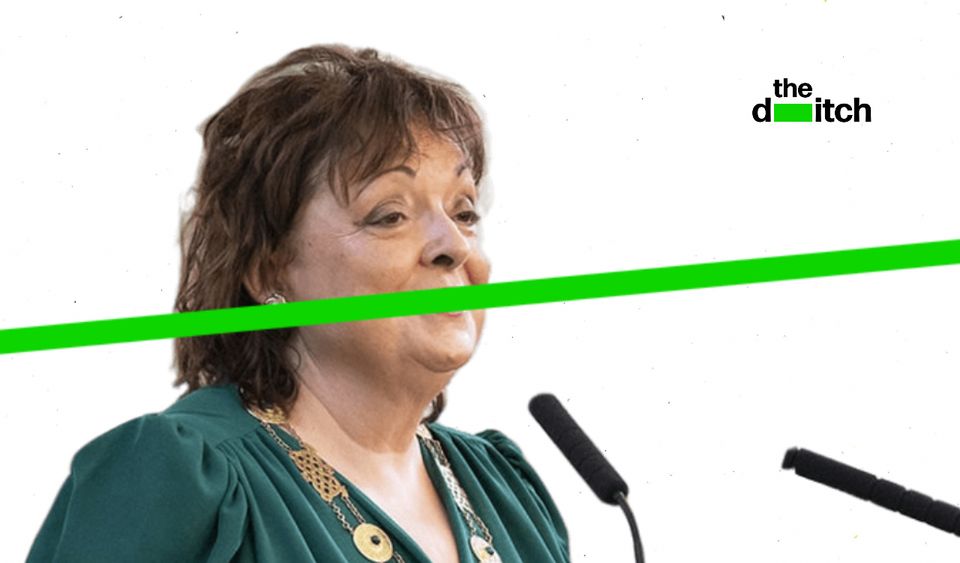The Law Society refuses to accept the adverse findings of an Ombudsman investigation into how the society handled a complaint against its sitting president.
The six-year investigation, which upheld the complaint against the Law Society, concluded half a year before president Maura Derivan was appointed. The Ombudsman, writing to the complainant last month, apologised for how long the investigation had taken. “That is due to the complex nature of not just the issue itself but also the interactions with the Law Society.”
The Ombudsman in its investigation made three recommendations to the Law Society to try to resolve the matter – but the society refuses to implement these recommendations. "As the Law Society remains steadfast in its position that it does not accept the recommendations in the report, there is nothing further the Ombudsman can do in relation to your case,” wrote the office to the complainant this August.
‘The Law Society failed to complete its obligations’
Managing partner of Tipperary law firm Derivan Sexton & Company, Maura Derivan, became president of the Law Society on 11 November, 2022 for a one-year term. She's been a member of the Law Society Council since 2006.
Derivan on her appointment said, “We can champion the solicitors’ profession and provide a high standard of service to our clients, stakeholders and members of the public at all times, which is a vehicle to improve access to justice for all.”
Less than a half-year before her appointment, in July 2022, the Office of the Ombudsman concluded a formal investigation into how the Law Society handled a complaint made against Dervivan by a former client.
The client had alleged that the Law Society had failed to adhere to its statutory obligations in hearing the complaint against Derivan. The Ombudsman upheld the complaint.
After the conclusion of this investigation the Ombudsman tried for a year to have its recommendations implemented but the Law Society refused to do so.
The complainant, according to the Ombudsman, was “unhappy” with how legal proceedings in which Derivan acted for them were carried out, as well as the fees Derivan had charged.
The first complaint was made to the Law Society in November 2012 and concerned Derivan’s alleged “poor communication, failure to provide monies due to the complainant and failure to provide details of her bill”.
The Law Society accepted the complaint. The complainant, through their new solicitor, went on to make both excessive fees and inadequate services complaints against Derivan.
After back and forth between Derivan and the Law Society about these allegations, the society wrote to the complainant in August 2015 and informed them, “It was now clear that an agreement was not going to be reached,” according to the Ombudsman. The complainant brought the matter to an independent adjudicator who was satisfied that the way the Law Society dealt with the complaint was “well considered, fair and reasoned”.
This is when the complainant engaged with the Ombudsman, which ultimately opened a formal investigation into how the Law Society handled the complaint.
The Ombudsman considered whether the Law Society had complied with its statutory duties under sections eight and nine of the Solicitors (Amendment) Act 1994, which concern alleged inadequate services and the charging of excessive fees.
The Ombudsman ruled that the Law Society hadn’t fulfilled its obligations under either section.
“At no point during the examination of the complaint did the society make a determination” on the alleged inadequate services aspect of the complaint, wrote the Ombudsman in its report, concluding this to be “maladministration”.
When it came to the alleged excessive fees, though the Law Society had made an attempt to resolve the issue, it hadn’t completed the legally required process, according to the Ombudsman.
“I believe that when efforts to resolve the matter by agreement had failed, the society failed to comply with the statutory obligations placed upon it by section nine of the Solicitors (Amendment) Act 1994,” reads the report.
The Ombudsman recommended that the matter come before a new Law Society committee and that the society gives a proper hearing to both allegations. The ruling also recommended the society gives a “proper reasoned explanations for its decisions on each individual aspect of the complaint”.
The Law Society however won’t accept the ruling and refuses to reopen the matter concerning its current president. One of the reasons the society won’t reconsider is because of a possible breach of Derivan’s human rights.
“There is a very real issue of fundamental unfairness which the re-entering of this matter before the committee would pose for the solicitor in question. This is not so much a fair procedures issue as simply a fundamental unfairness issue and could well go to the point of breaching not only the legal rights but also the human rights of the solicitor concerned,” wrote the society to the Ombudsman.
Because the Law Society won't accept the ruling, the Ombudsman has had to close the case. The office’s position remains that the society failed the complainant.
“As recorded in the report, the Ombudsman's opinion is that the Law Society failed to complete its obligations under the Solicitors (Amendment) Act 1994 when dealing with your complaint. On that basis your complaint has been upheld in this Office,” wrote the Ombudsman to the complainant this August.
When asked whether the Law Society accepts the findings of the Ombudsman's investigation into the complaint against Derivan and why the society hasn’t implemented the investigation’s recommendations, a Law Society spokesperson said, “Can you share a copy of the findings you are referring to please?”
The Ditch responded, “Are you saying the Law Society isn't familiar with the findings?”
The spokesperson declined to respond.
Derivan declined to comment.


